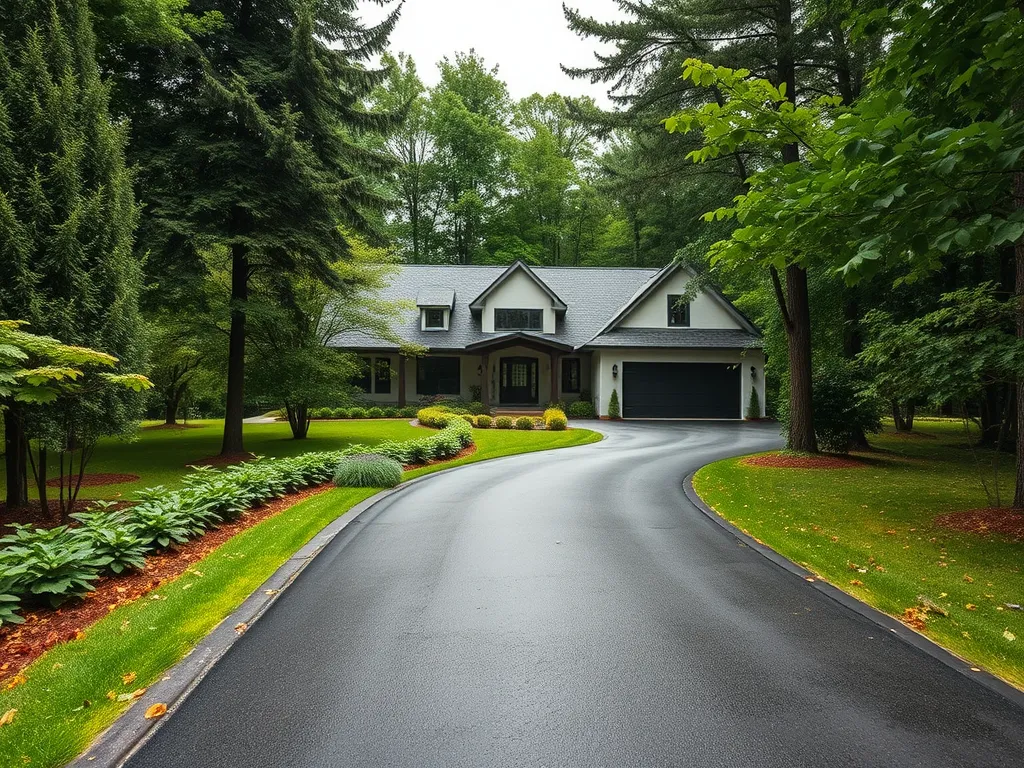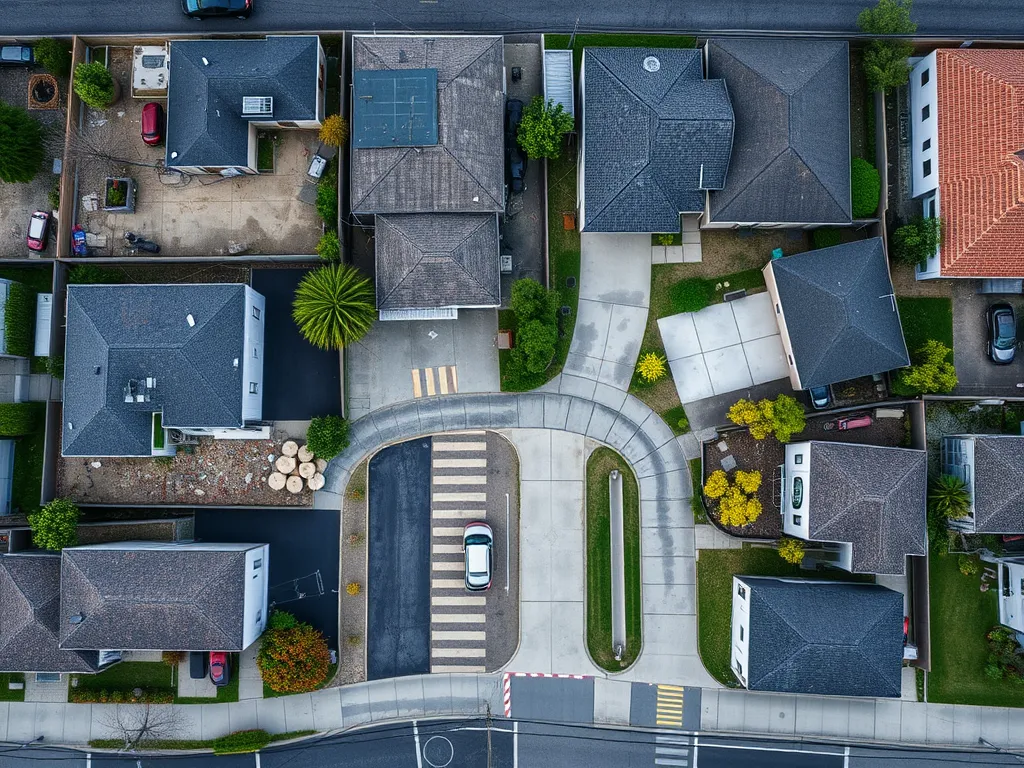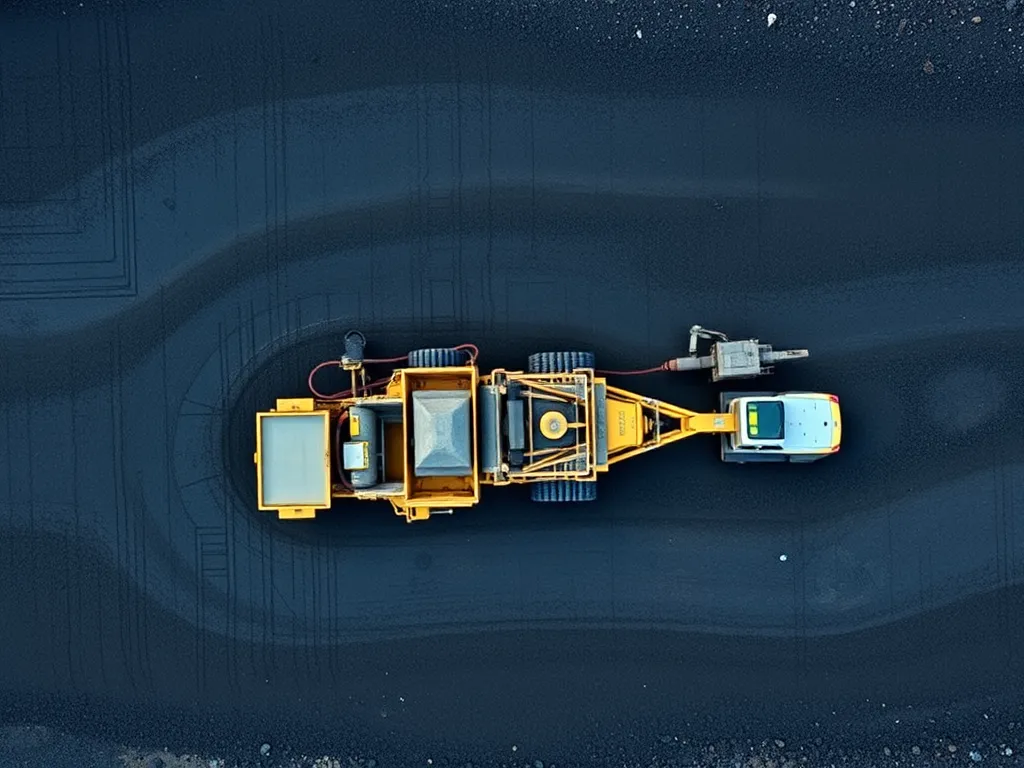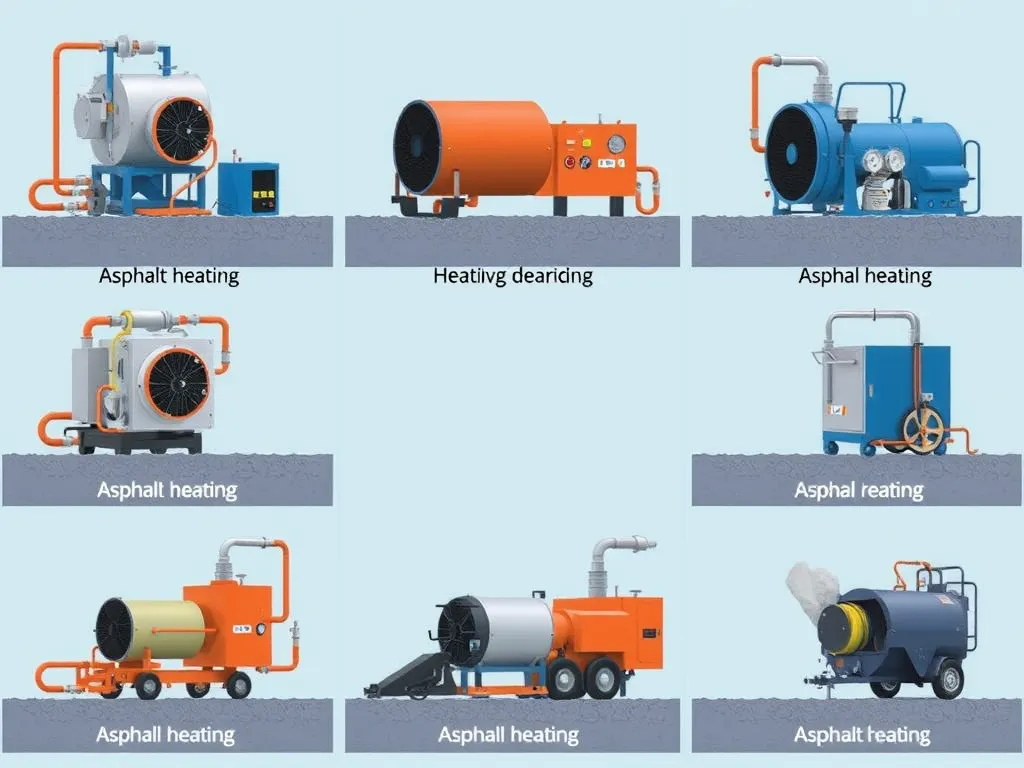Does an Asphalt Driveway Increase Property Taxes?
Published on: November 18, 2025 | Last Updated: April 14, 2025
Written By: George Voss
An asphalt driveway might increase your property taxes if local assessors classify it as a value-adding improvement. Tax impacts depend on your region’s assessment rules, project scope (new install vs. repair), and material costs ($3–$7 per square foot for asphalt). Minor maintenance like crack filling won’t raise taxes, but a new driveway often does. Always verify local guidelines and consult your tax assessor before starting work to avoid unexpected bills.
This article explains how property taxes connect to driveway upgrades, compares asphalt to concrete or gravel, and details state-specific tax policies. You’ll learn how installation timing affects assessments, why asphalt’s 20+ year lifespan influences home value, and how using recycled asphalt (95% reclaimed materials) impacts costs. We’ll also cover using asphalt calculators to estimate project budgets and strategies to maximize curb appeal without overpaying in taxes.
Contents
Understanding Property Taxes and Asphalt Driveways
Tax bills link to a property’s worth. Local tax officials assign a dollar amount to your lot and structures. This valuation can shift if you modify your home.
How Property Tax Assessments Work
Tax officials look at your property’s traits—lot size, building quality, and upgrades. A millage rate (tax per $1,000 of value) is applied to this figure. Annual adjustments may occur based on market shifts or physical changes.
Role of Home Improvements in Tax Evaluations
Not all upgrades boost tax bills. Fixing a roof? Likely no change. Adding a pool or expanding living space? That could raise your valuation. Driveways fall into a gray zone—functionality matters more than luxury.
Asphalt Driveway Tax Assessment Criteria
Assessors check if your asphalt installation is new or replacing old material. A fresh 1,000 sq.ft. driveway might add $3,000-$5,000 to your home’s worth. If swapping gravel for asphalt, tax impact varies by local rules. Quality of mix (e.g., PG 64-22 binder) and thickness (2-3 inches typical) also factor in.
Do Asphalt Driveways Raise Property Taxes?
Possibly—but not always. A 2020 study by the National Association of Realtors found 57% of tax districts ignore driveways in valuations unless they’re part of larger landscaping projects.
Factors That Determine Tax Increases
Three main points:
- Local tax rates (e.g., 1.2% in Texas vs. 0.8% in Hawaii)
- Driveway size (larger installations = higher value add)
- Original property condition (upgrading from dirt may trigger reassessment)
A $7,000 asphalt job in a 2% tax district could add $140/year if fully assessed.
Comparing Asphalt to Other Driveway Materials
| Material | Cost per sq.ft. | Tax Impact Likelihood |
|---|---|---|
| Asphalt | $3-$5 | Low |
| Concrete | $6-$10 | Moderate |
| Pavers | $10-$20 | High |
Asphalt’s low cost and short install time (1-2 days) make it a common pick. Tax officials view it as basic infrastructure, not a luxury upgrade.
Local tax laws play a big role in how driveways impact your bill—which brings us to regional policy variations.
Transition Statement: Tax impacts vary widely by location—a topic we’ll unpack in our analysis of state-specific rules.
Key Factors Influencing Tax Impact
Property tax changes tied to asphalt driveways hinge on two main elements: where you live and when you install. Local rules dictate how upgrades affect assessments, while timing determines when tax adjustments kick in.
Regional Variations in Tax Policies
Tax policies differ sharply across states. Some tie assessments strictly to market value, while others cap annual increases. Driveway materials may also sway tax calculations regionally.
Does an Asphalt Driveway Increase Property Taxes in Oregon?
Oregon’s Measure 50 limits annual assessed value growth to 3%. Adding an asphalt driveway here rarely triggers reassessment unless it’s part of major renovations. Most homeowners see minimal tax shifts—typically under $50/year for a standard 1,200 sq ft driveway.
State-Specific Assessment Practices
Texas recalculates taxes after pulling permits for new driveways, while Michigan waits until property transfers. In New Jersey, paved surfaces count as “land improvements,” adding 10-15% to assessed value. Check local mill rates: a $6,000 asphalt install in a 2% tax district adds $120 annually.
Timing Of Installations and Tax Implications
When you pave matters. Tax assessors often review properties cyclically—install just before reassessment, and taxes may jump faster.
Does an Asphalt Driveway Increase Property Taxes in 2021?
2021 saw pandemic-related assessment freezes in 12 states. Homeowners in freeze zones adding driveways that year delayed tax hikes until 2022-2023. Example: California’s Prop 19 phased in changes, capping driveway-related increases at 2% until 2024.
How Recent Improvements Affect Annual Assessments
States like Florida reassess annually, so a 2023 driveway impacts 2024 taxes. Contrast with Pennsylvania’s triennial system—a 2023 install might not raise bills until 2026. Always verify your assessor’s review schedule before breaking ground.
With location and timing covered, let’s examine how asphalt driveways influence home resale value—and whether buyers offset tax costs.

Asphalt Driveways and Home Value
A smooth asphalt drive boosts curb appeal. Buyers see it as a plus. This can lift your home’s price tag. But will it hike your tax bill? Let’s dig in.
Does an Asphalt Driveway Increase Property Value?
Yes, but not always by much. A new asphalt drive can add 2-5% to home value in most markets. Appraisers note paved lots first. Gravel or dirt? Less impact.
Resale Benefits of Asphalt Driveways
Homes with paved drives sell 9 days faster than those without. Asphalt lasts 15-20 years with care. Buyers skip the cost to pave later. This speeds up sales.
Cost-to-Value Ratio for Asphalt Installations
Asphalt costs $4-$6 per square foot. Concrete runs $8-$15. You’ll recover 50-75% of asphalt costs at sale. Gravel? Just 20-40%. Less upfront spend means better returns.
Is an Asphalt Driveway Worth the Investment?
It depends on your plans. Stay 5+ years? Likely yes. Sell soon? Maybe not. Tax bumps vary by town. Some add $100 yearly. Others skip small upgrades.
Long-Term Durability vs. Upfront Costs
Asphalt needs seal coats every 3-5 years ($0.15-$0.25 per sq ft). Skip repairs? Cracks form in 2-3 years. Well-kept drives keep value high with no major tax jumps.
Next, let’s break down the costs tied to asphalt drives—from fresh pours to routine care.
Also See: Benefits Of Using Sustainable Materials in Asphalt Mixes
Cost Considerations for Asphalt Driveways
Installing or upgrading driveways requires balancing upfront spending with potential tax impacts. Property owners frequently use tools like asphalt calculators to predict budgets while weighing how choices might influence yearly tax obligations.
Estimating Expenses With an Asphalt Calculator
Online asphalt calculators factor in dimensions, thickness, material prices, and labor rates. These tools provide ballpark figures for planning but don’t account for regional tax policies linked to property upgrades.
Driveway Thickness and Material Costs
Residential driveways typically require 2-3 inches of compacted asphalt, costing $3-$7 per square foot. Thicker layers (4+ inches) boost durability but raise material needs by 15%-20%. Local gravel prices and bitumen costs also shift totals, directly affecting project budgets.
Residential vs. Commercial Asphalt Projects
Home driveways under 1,000 sq ft rarely trigger tax reevaluations. Commercial lots exceeding 5,000 sq ft often face closer scrutiny during inspections, increasing the likelihood of tax adjustments due to higher valuation thresholds.
Does Sealcoating an Asphalt Driveway Increase Property Taxes?
Routine upkeep like sealcoating ($0.15-$0.25 per sq ft) preserves surfaces but seldom impacts taxes. Tax offices categorize such work as maintenance, not value-adding upgrades. Major modifications—like full replacements or expansions—are likelier to trigger reassessments.
Maintenance vs. Major Improvements in Tax Evaluations
Crack filling or resealing maintains functionality without boosting home value. Replacing degraded bases or expanding driveway square footage counts as capital improvements, potentially lifting taxable value by 1%-3% depending on local mill rates. Always verify municipal guidelines before starting projects.
Next, let’s examine how eco-friendly practices influence both sustainability efforts and fiscal outcomes.
Environmental and Practical Aspects Of Asphalt Driveways
Asphalt driveways offer both functional benefits and eco-conscious advantages that tie directly to property value—and by extension, tax implications. Let’s explore how material choices and maintenance routines shape long-term costs.
Sustainability Of Asphalt Materials
Modern asphalt mixes incorporate recycled materials, reducing environmental impact. Over 94 million tons of reclaimed asphalt pavement (RAP) get reused annually in the U.S., cutting mining needs and landfill waste. This lowers production costs by 20-30% compared to virgin materials.
Recyclability and Eco-Friendly Practices
Asphalt is 100% recyclable. Crushed RAP blends with fresh bitumen binder to create durable surfaces. Many municipalities incentivize eco-friendly upgrades, which may influence tax assessments. While adding an asphalt driveway rarely triggers major tax hikes, using recycled materials could align with green building credits in regions like Oregon or California.
Lifespan and Maintenance Requirements
A well-built asphalt driveway lasts 15-25 years with proper care. Sealcoating every 3-5 years and crack filling prevent water damage. Regular upkeep costs $0.15-$0.25 per square foot annually, far cheaper than replacements.
How Upkeep Affects Long-Term Value
Routine maintenance preserves curb appeal without triggering reassessments. Tax assessors typically focus on capital improvements, not minor repairs. For example, sealcoating an asphalt driveway costs $0.10-$0.25 per square foot but won’t raise property taxes. Full replacements, though, might add 1-2% to home value, potentially affecting future assessments.
Next, let’s address common questions about tax deductions and material comparisons.
FAQ: Asphalt Driveways and Property Taxes
Is an Asphalt Driveway Tax Deductible?
Generally, the cost of installing an asphalt driveway is not tax deductible as a personal expense. However, if the property is a rental or a business, some part of the installation cost may be deductible as a business expense. It’s best to consult a tax professional for advice regarding your specific situation.
What Home Improvements Can Increase Property Taxes?
Home improvements that significantly enhance the value or utility of your property can result in increased property taxes. These may include major renovations like adding a new room, a deck, swimming pools, or high-value upgrades like kitchen and bathroom remodels. Driveways can fall into this category, depending on local assessment practices.
Do Asphalt Driveways Affect Tax Rates Differently Than Concrete?
Asphalt and concrete driveways can both affect property taxes, but the impact may be different. Generally, asphalt is viewed as a basic functional improvement, while concrete could be considered a higher-end upgrade. This can lead to varying assessments based on local tax policies. High-quality concrete installations might trigger a different tax evaluation compared to asphalt, depending on local judges of value.

Closing Thoughts
An asphalt driveway can influence your property taxes, but the impact varies. While a new driveway can improve curb appeal and potentially increase home value, property tax increases depend on local assessment practices and overall property value evaluations.
Regional variations play a significant role. In some areas, enhancements like an asphalt driveway could lead to a modest tax increase. In others, the effect may be negligible. Always consider the timing of your installation, as recent improvements might affect tax assessments differently than older renovations.
Before deciding on an asphalt driveway, weigh the benefits against the costs and potential tax consequences. A well-planned investment can enhance your property’s value while keeping tax implications in check.
For more insights and tools to calculate your asphalt driveway costs, visit Asphalt Calculator USA.


